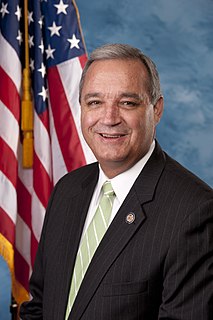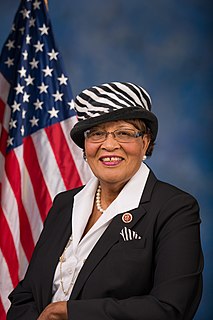A Quote by Dick Gephardt
I have been a long and strong supporter of civil rights in my whole career. I led the fight to get the voting rights act re-enacted. I have been a strong supporter of affirmative action. I believe in it strongly.
Related Quotes
The government has to treat all citizens equally. I am a strong supporter not of a weak version of civil unions, but of a strong version, in which the rights that are conferred at the federal level to persons who are part of the same-sex union are compatible. When it comes to federal rights, the over 1,100 rights that right now are not being given to same-sex couples, I think that's unacceptable.
For many years now, I have been an outspoken supporter of civil and human rights for gay and lesbian people. Gays and lesbians stood up for civil rights in Montgomery, Selma, in Albany, Ga. and St. Augustine, Fla., and many other campaigns of the Civil Rights Movement. Many of these courageous men and women were fighting for my freedom at a time when they could find few voices for their own, and I salute their contributions.
I'm a supporter of gay rights. And not a closet supporter either. From the time I was a kid, I have never been able to understand attacks upon the gay community. There are so many qualities that make up a human being... by the time I get through with all the things that I really admire about people, what they do with their private parts is probably so low on the list that it is irrelevant.
The Democrats co-opted the credit for the Civil Rights Act of 1964. But if you go back and look at the history, a larger percentage of Republicans voted for that than did Democrats. But a Democrat president signed it, so they co-opted credit for having passed the Civil Rights Act of 1964 and the Voting Rights Act of 1965.
[Before the Civil Rights Act of 1964], many governments in southern states forced people to segregate by race. Civil rights advocates fought to repeal these state laws, but failed. So they appealed to the federal government, which responded with the Civil Rights Act of 1964. But this federal law didn't simply repeal state laws compelling segregation. It also prohibited voluntary segregation. What had been mandatory became forbidden. Neither before nor after the Civil Rights Act were people free to make their own decisions about who they associated with.
The foundations of modern civil-rights law are exceptionally secure. Conservative judges nibble around the edges sometimes, and people still debate the constitutionality of affirmative-action programs. But almost no one seriously argues about the basic meaning or legitimacy of core civil-rights protections.
The Civil Rights Act of 1964 was the most sweeping civil rights legislation of its day, and included women's rights as part of its reforms. Ironically, the section on women's rights was added by a senator from Virginia who opposed the whole thing and was said to be sure that if he stuck something about womens' rights into it, it would never pass. The bill passed anyway, though, much to the chagrin of a certain wiener from Virginia.


































